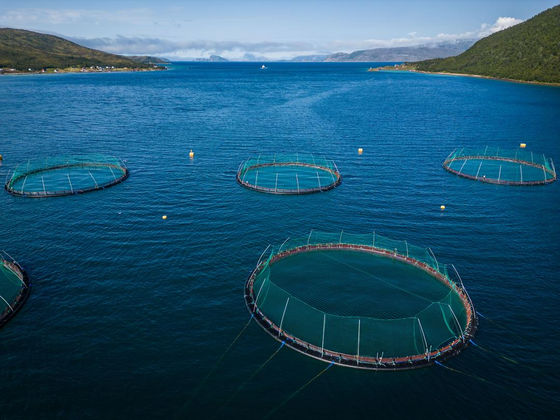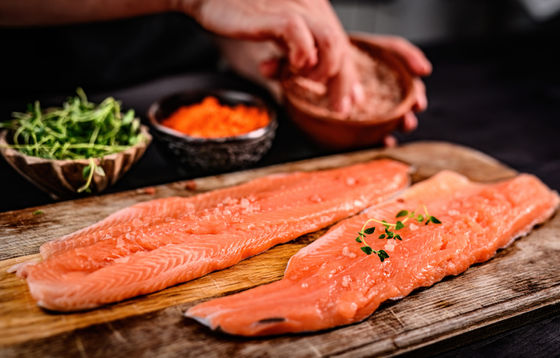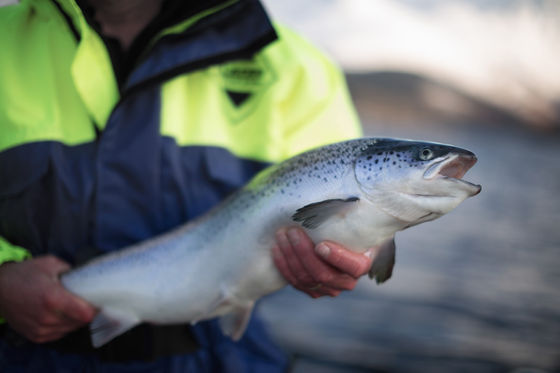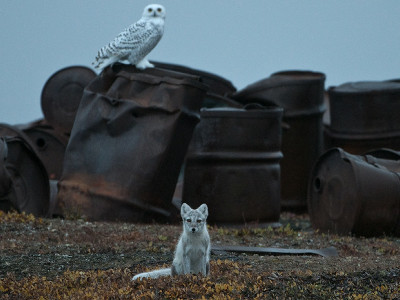27,000 salmon escape from Norwegian fish farm, seafood company offers bounty for escapees

Norway exports 1.2 million tons of farmed salmon a year, but it was discovered that 27,000 salmon that were being raised in the farms broke their nets offshore and escaped into the sea. Mowi, the Norwegian fisheries company that manages the farms, has set a reward of 500 kroner (about 7,000 yen) for each escaped salmon, due to concerns that farmed salmon could breed with wild salmon and have a serious impact on the ecosystem.
Mowi: Rømt fisk etter at merd kollapset i Dyrøy
Lakserømming i Troms ved Mowis anlegg Storvika V i Dyrøy
https://www.vg.no/nyheter/i/wgkl4M/brudd-ved-oppdrettsanlegg-svaert-krevende
Seafood firm offers bounty to catch 27,000 escaped salmon off Norway | Norway | The Guardian
https://www.theguardian.com/world/2025/feb/11/seafood-firm-bounty-escaped-salmon-norway
On February 9, the Norwegian Fisheries Agency announced that it had received a report of an escape of farmed salmon from Mowi, the world's largest salmon farming and processing company. The problem occurred at the Struvika V farm in Diroy, Troms County, in northwestern Norway, where the outer ring of a fish cage was damaged due to stormy weather, causing the cage to sink into the sea, allowing the salmon inside to escape.
Below is a photo of another nearby farm, using the same type of pens as the one where the incident occurred. At the time, Strvika V had five pens in operation with a total capacity of 4,315 tonnes.

Mowi initially told authorities that between 10 and 100 salmon had escaped, but the next day it significantly revised its estimate, saying that as many as 27,000 had escaped - about 25% of the farm's 105,000 salmon.
The escaped salmon had grown to a size suitable for shipping, with an average weight of 5.5kg.
'This is extremely unfortunate and should never have happened,' Mowi spokesman Ola Helge Hjetland said.
Monica Solberg, a salmon farming researcher at the Norwegian Institute of Marine Research, said the biggest concern about farmed salmon escapes is hybridization between farmed and wild salmon, which could change the characteristics of wild salmon because farmed fish are bred to grow quickly.

In Norway, wild salmon numbers hit an all-time low in the summer of 2024. As a result, salmon fishing has been banned in 33 rivers for 2024, and a ban is under consideration for 42 rivers and three fjords for 2025.
Experts say there is an urgent need to prevent human activities, such as the escape of farmed fish, and to preserve the genetic identity and genetic diversity of salmon. Solberg said that surveys so far have found signs of hybridization in two-thirds of the more than 200 river basins.
Environmental groups are also opposed to marine aquaculture altogether due to problems such as sea lice and other parasites and disease.
'This is an environmental crime and proof that open cage farming must be stopped. They have no control over the situation,' said Truls Gulowsen, head of the Norwegian Society for Nature Conservation.

To address these concerns, Mowi has set up a bounty for escaped salmon that registered fishermen can collect by catching farmed salmon and reporting them to local authorities, and is working with the Coast Guard's large vessel Svalbard to act as a breakwater and help contain the situation.
The agency also instructed Mowi to expand efforts to recapture escaped salmon.
'Typically, farmers who release escaped fish are only allowed to recapture within a 500 metre radius around their facility. However, given the potential scale of this incident, Mowi has been instructed to extend its recapture operations beyond that radius,' said Vegard Oen Hatten, senior communications adviser at the Norwegian Fisheries Directorate.
Related Posts:
in Creature, Food, Free Member, Posted by log1l_ks







